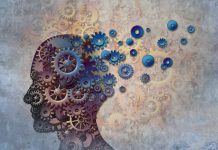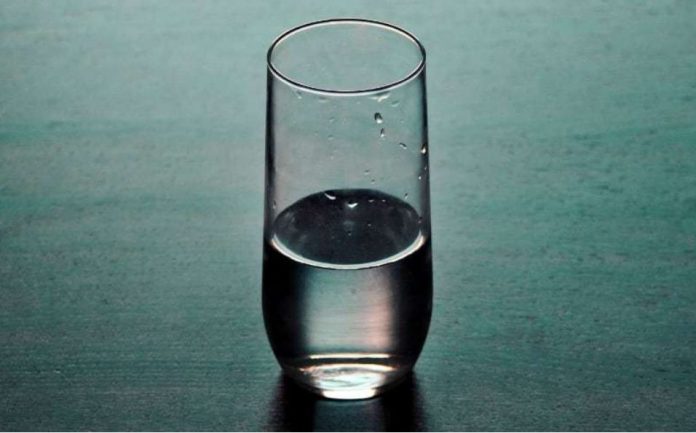At a Glance
- Some signs for hunger are the same signs for thirst could so we be misinterpreting these signals?
- The hippocampus is the region of the brain signals the need for food and thirst.
- Western diets rich in sugars and saturated fats result in a lessened awareness of the body’s signals of thirst and hunger.
Do our bodies really confuse hunger for thirst? Are we reaching for calories when we need to fill up our fluids? Do you find yourself not realizing you’re actually thirsty?
It’s surprising to think that this far into our evolution, with all our advances in technology—an app for everything we human’s need—that we could still confuse simple, life-sustaining signals our bodies give us! But the fact is, many of us are still reaching for something sweet or savoury when we should be simply sipping on water.
I have to admit, I’m terrible for allowing myself to become dehydrated. I mean, in reality, how hard is it to drink enough water per day? After All, our body’s made up from a huge percentage of water and replenishing it is essential, so how come for so many people remembering to hit their daily water goal is so difficult?
With obesity becoming the epidemic it is, being able to tell the difference between thirst and hunger is an important skill, not only to ensure you prevent dehydration but also unnecessary overeating. Let’s take a look at how to tell the difference between the two.
Can You Really Mistake Hunger and Thirst?
You’d think that the answer is no, but are we misunderstanding our body’s signals causing us to confuse the two? Our internal cues for hunger and thirst send messages to the brain that are so subtle we often don’t listen. To further confuse us, the area in the brain that interprets hunger and thirst signals is the same.
A study with participants recording their feelings of hunger and thirst showed no real evidence that feeling thirsty promotes eating and hunger promotes drinking.
Do we really know how to listen to our body’s signals for thirst and water? Let’s look at what signals the body gives us to tell us we need to top up on fluids or food.
Let Thirst Be Your Guide
Thirst is an essential action to maintain fluid balance. Staying hydrated is important to your health and helps you eliminate the sensation of thirst and identify hunger.
Drinking water keeps you hydrated, caffeine, soda and sugary energy drinks often lead to dehydration and the calorie content can cause weight increase.
Symptoms of dehydration can include headaches, sluggishness, nausea, dry eyes and dizziness. Not urinating enough is another sign of dehydration, most people urinate six to eight times or more a day. In frequent urination or a change in your urine color to dark yellow is a good indicator that you’re dehydrated.
Recommended daily intake of water is 3 liters for men and 2.5 liters for women to maintain proper hydration. Our bodies also take water from the food we eat, if we eat a healthy diet with fruit, vegetables and protein we don’t necessarily need this recommended amount of water by itself. On the other hand, if we eat high-processed foods that contain little water then our bodies use water to break down the food we eat.
Water contains no calories and when you consume a glass of water it takes 15 minutes for your brain to register and signal you’re satisfied. If you still have feelings of hunger afterwards then your body is signaling you need food.
How Does Hunger Make you Feel?
Hunger signs are normally stomach rumbling, feelings of emptiness in the stomach, cranky mood, low energy levels, dizziness and fatigue.
Regulation of hunger is controlled by gut hormones which act on areas of the brain that affect the body’s sensation of hunger. One specific hormone called the ghrelin is known as the hunger hormone as it can cause signaling to the brain that can increases food intake.
Try not to confuse hunger with a desire for food that’s habit driven and not hunger driven.
Does What You Eat Make a Difference?
Do different foods make you feel more hungry or increase the feeling of thirst?
Salt you would think makes you thirsty, but new studies are showing the opposite may be true. Increased levels of salt intake initially make you thirsty but actually cause the body to conserve water, the energy used to conserve water in turn makes your body need more fuel (food).
Modern diets that contain high saturated fats and excess sugars may play a role in not listening to the body’s signals for required thirst. Studies show that western diets in particular were shown to reduce an individual’s perception of the brain’s signals of needing fluids.
High sugar levels in the blood can cause excess thirst. So reducing your intake of sugary foods can help.
The Brain’s Role
The hypothalamus is the area of the brain which affects many functions that are key to human health such as hunger and thirst. This region of the brain also signals hormones that help regulate appetite and hydration.
We can become desensitized to the signals the hypothalamus sends out when it comes to thirst and hunger. Habitual eating and stress eating all disorientate the body’s natural signals.
The lack of sleep can disrupt hormone balance increasing the hormone ghrelin thus signaling to the body that it’s hungry.
The type of fluid we consume also affects the body’s hormones; limiting caffeine and alcohol will help keep hormonal balance.
Stress raises cortisol levels in your body and this can cause an increase in appetite. Stress often makes us reach for carbs and sugar fueling the roller coaster of continued imbalance.
What Action to Take
Listening to your body is key for reading the signals of thirst and hunger. Being in tune with what your body needs and when is vital to maintaining balance.
Try fasting to become in tune with your body’s signals for hunger, abstinence makes you more sensitive. Fasting is proven to be beneficial for your health and the body feels really cleansed and nourished when you eat and quench a thirst after a day fasting.
Be realistic, if you’ve just eaten a couple of hours ago then you shouldn’t really be hungry. Kick those habits of filling up on high calorie energy snacks. Don’t let your eyes feed your mouth, just because you see some chocolate or a slice of pizza doesn’t mean your body needs it.
Try using apps to track your water intake and insure you consume the RDA level of fluid.
And Finally…
If our diet and lifestyle habits have disconnected us from being sensitive towards our body’s signals for thirst and hunger we need to re-evaluate our lifestyles.
Habits easily become a routine like snacking an hour after having a meal just because we’re watching a movie, or jumping for that sugary chocolate bar to relieve your afternoon slump and boost energy levels.
Change your drinking habits too. We thrive on caffeine and soda drinks and these are liquids but they don’t keep the body in a state of hydration, they actually cause dehydration. Our body’s naturally 60 percent water, and we need to replenish it with water not calorie-containing drinks that confuse the body.
Realistically if we know what hunger and thirst feel like how can we mistake one for another?
























